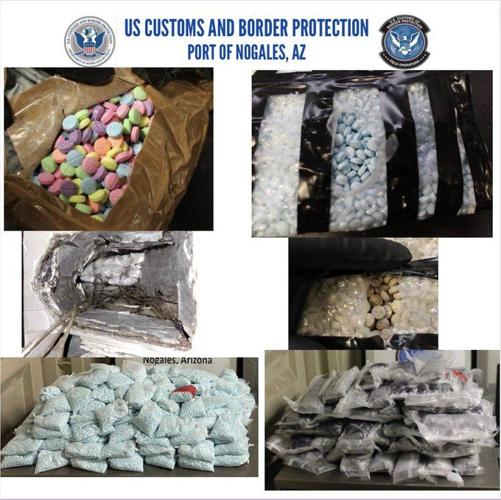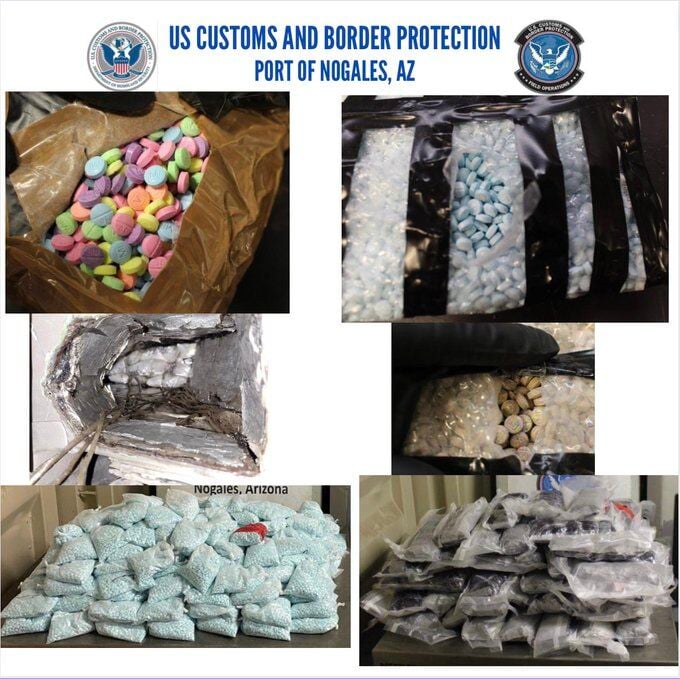PHOENIX — Senate Republicans are working to greatly boost the penalties for people who supply fentanyl, advancing a bill Thursday that would subject someone who makes, transports or sells the drug to life in prison or the death penalty if someone dies after taking the powerful synthetic opioid.
But the proposal from Republican state Sen. Anthony Kern of Glendale got a cold reception from people who testified at the Senate Judiciary Committee hearing, along with Democrats, who worried the broad language in the bill could lead to friends or family members of overdose victims being prosecuted.

Sen. Anthony Kern
Democrats on the committee also raised concerns that people who provided the drug would avoid calling for medical help for an overdose victim because they fear prosecution, even with provisions in a “Good Samaritan’’ law currently on the books. They include Phoenix Sen. Christine Marsh, whose 25-year-old son Landon Marsh died in 2020 after he took what he thought was a prescription opioid that was in fact fentanyl.
Timothy Sparling, an attorney with the Arizona Attorneys for Criminal Justice, a group that advocates for defendants, said Kern’s proposal, Senate Bill 1029, could sweep up family members, friends or others if someone got hold of drugs they had and ended up dying.
“This would lead to scores of murder convictions for drug users who by virtue of their use, or possession of fentanyl alone, will be a cause of death of another,’’ Sparling told the panel.
Sparling said a husband who gave his wife a pill to handle her pain could get life in prison, or friends who are partying together where one ends up overdosing could face first-degree-murder charges.
“It doesn’t matter if it was an accidental overdose, and it will hurt the people who hurt the most from these situations oftentimes, by putting them in prison,’’ he said.
Time ‘to put the hammer down’
The move is prompted by the ongoing opioid epidemic, which has seen nearly 8,000 people die of overdoses in the past five years, according to statistics compiled by the Arizona Department of Health Services. The department does not post a breakdown on how many of those deaths were caused by fentanyl as opposed to other opioids, but for non-fatal overdoses the rate was 64% last year.
Kern said it is time to crack down on those who provide the drug to others.
“We all know of the fentanyl problem out there,”’ he said. “I know probably everybody in this room knows of someone that has died of fentanyl, and it’s time in my opinion to put the hammer down.’’
The proposed law expands what is known as the felony murder rule, which allows prosecutions even if someone was not directly involved in causing a death.
Kern said the “Good Samaritan’’ law, which bars prosecutions of someone who calls for help for an overdose victim, would bar prosecutions of that person. Sparling disagreed, saying there is no exception to Kern’s proposal.
Kern acknowledged that courts would be involved in those decisions.
“If a person is arrested then it has to go through the court process,’’ Kern said. “In my understanding everybody except Jan. 6 prisoners and certain Republicans get due process.’’
Kern was referring to the attack on the U.S. Capitol on Jan. 6, 2021, when thousands of supporters of then-President Donald Trump attacked Congress in an effort to stop lawmakers from confirming Joe Biden’s win. Kern was there but has said he did not enter the Capitol and did not take part in the riot.
Federal prosecutors have charged more than 900 people with taking part in the attack on Congress, and nearly 500 of them have pleaded guilty, according to The Associated Press. Several dozen have gone to trial and the vast majority have been convicted.
Another bill sponsored by Kern greatly reduces the amount of fentanyl needed to merit major felony charges, lowering it from nine grams to two milligrams, and allows major boosts to prison sentences if someone under 15 overdoses.
Conflicting proposals?
Democratic Sen. Anna Hernandez of Phoenix said the proposals are in conflict with one from Fountain Hills Republican Sen. John Kavanagh that opposes defunding police but also says law enforcement should focus on high-risk offenders, expand rehabilitative programs and work to reduce prison populations.
“I think that we are looking at using hard criminalization in the wrong way here,’’ Hernandez said. “Why are we not also using Sen. Kavanagh’s language from his referendum to help us build a better policy to address the fentanyl issue?’’
Kern said that is a different issue.
Kavanagh, a committee member, suggested that the provision on sales of fentanyl should be removed to prevent small amounts from triggering major prison sentences, but it remained when he voted along with other GOP committee members to advance Kern’s bill. No Democrats backed Kern’s bill.
Democrats on the committee also raised concerns that someone who provides a drug might not even know it is fentanyl. The opioid has been mixed into many other drugs and sold on the street as other narcotics.
Republican Sen. Justine Wadsack of Tucson wasn’t buying that, saying she had no problem seeing those who distribute fentanyl subject to the death penalty.
“I have a real issue with giving any leniency to somebody who’s dealing with fentanyl, with other people’s lives,’’ Wadsack said. “I don’t know that we need to be worrying about how drug dealers can verify that their drugs are safe for the street.’’
New numbers from the DEA shed light on just how far the opioid epidemic reaches in the United States. The DEA has seized enough fentanyl this year to kill every single person in the U.S.






